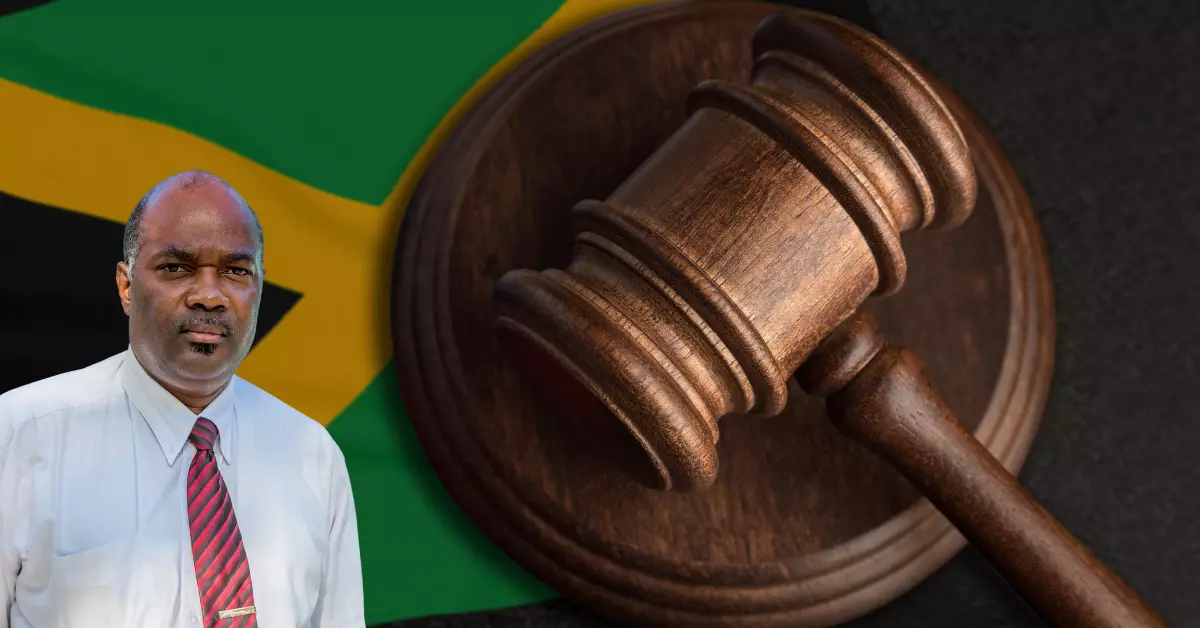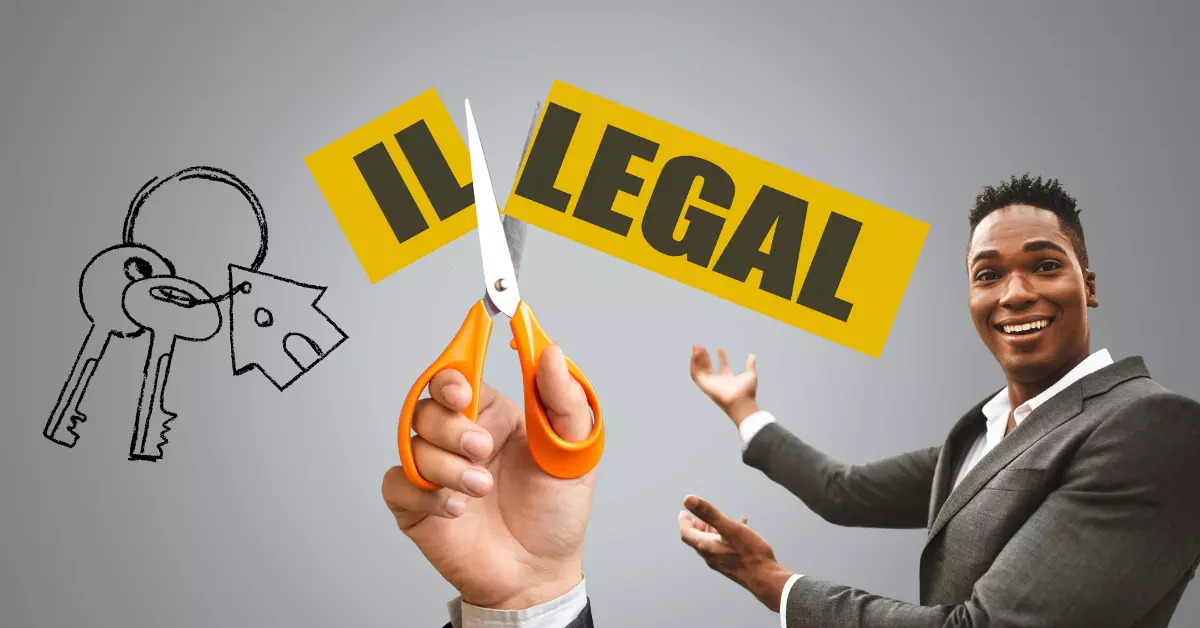What are My Rights As a Tenant in Jamaica? Rental Awareness
In Jamaica, tenants have rights such as peaceful enjoyment of their property. Additionally, tenants have the right to privacy, which includes the right to deny the landlord access to the property without prior notice or permission.
Jamaican law requires landlords to provide tenants with a written lease agreement that outlines the terms and conditions under which the property is being rented.
It is important for tenants to understand their rights and responsibilities in order to avoid any potential conflicts with their landlord.

Your Basic Rights As A Tenant In Jamaica
The jamaican tenancy act is responsible for regulating landlord and tenant relations. This act stipulates certain rights and obligations for both landlords and tenants, which must be adhered to.
Understanding this act is crucial for tenants to protect their basic rights as a renter.
Right To Quiet Enjoyment Of The Property
Tenants have the right to enjoy their rented property without any interference from the landlord.
This implies that the landlord cannot disturb the tenant in any way during their tenancy. The peace and quiet of the tenant must be respected by the landlord under all circumstances.
Right To Adequate Notice Before Entering The Property
A landlord cannot enter a rented property without the tenant’s permission, except in an emergency situation.
Landlords must provide reasonable notice, usually written, of their intention to enter the property. This notice must clearly state the date, time and purpose of the visit.
Right To A Habitable And Safe Living Environment
The rented property must be habitable and safe for tenants to live in. The landlord must ensure that the property meets certain standards.
It includes basic amenities such as electricity, clean water, and sanitation facilities. The landlord is responsible for maintaining the property’s safety and repair needs.

Right To A Rent Receipt And Accurate Account Of Rent Payments
The landlord must provide tenants with a receipt for rent payments made. This receipt must indicate the date, amount, and period of rent paid.
It is important for tenants to keep these receipts, as it serves as a record of payment in case of disputes.
In addition, landlords must also maintain an accurate account of all rent payments made to them.
Right To Reasonable Use Of Utilities
Landlords cannot prevent tenants from using utilities such as water, electricity, and gas. Tenants must, however, use these amenities in a reasonable manner.
The landlord is responsible for providing these services to the tenant, and the tenant must pay for the services consumed.
Tenants have basic rights under the Jamaican tenancy act, which must be upheld by the landlord. It is essential for tenants to understand their rights so that they can protect themselves in case of any violations.
Additional Tenant Rights Outlined In The Jamaican Tenancy Act
As a tenant in Jamaica, you have certain rights outlined in the Jamaican tenancy act. In addition to the basic rights, there are additional tenant rights that you should be aware of.
These include the right to request repairs and maintenance, and the right to receive interest on security deposits.
It also includes the right to redress in the case of illegal eviction, the right to appeal if an unfair decision is made, and the right to bring a claim against a landlord who violates any tenant’s rights.

Right To Request Repairs And Maintenance
As a tenant in Jamaica, you have the right to request that your landlord make necessary repairs and perform maintenance on the property you are renting.
This can include anything from repairing leaky pipes to fixing broken appliances. If your landlord does not make necessary repairs, you have the right to take legal action.
- The landlord is required to keep the premises in a good state of repair.
- The landlord is responsible for ensuring that all essential services (such as water and electricity) are in good working order.
Right To Receive Interest On Security Deposits
When you rent a property in Jamaica, it is common for landlords to require a security deposit. This deposit is intended to protect the landlord in the event that the tenant damages the property or fails to pay rent.
Under the Jamaican tenancy act, landlords are required to hold your security deposit in a separate account and pay you the interest earned on it at regular intervals.
- The landlord must pay the tenant interest on the security deposit at a rate that is no less than the prevailing market rate for savings accounts in Jamaica.
- The landlord must keep the security deposit in a separate account and make it clear how much is being held.
Right To Redress In The Case Of Illegal Eviction
If your landlord tries to evict you without following the proper legal procedures, you have the right to seek redress in court.
This includes illegal lockouts, shutting off utilities, or other similar actions that attempt to force you out of your rental property.
- The landlord cannot evict a tenant without first going through the court system.
- The landlord must serve proper notice and follow all the proper legal procedures for eviction.
Right To Appeal If An Unfair Decision Is Made
If you believe that the court system has made an unfair decision regarding a dispute with your landlord, you have the right to appeal the decision.
This can be done by filing an appeal within the specified time frame and following the proper legal procedures.
- The tenant has the right to appeal court decisions to higher courts.
- The tenant must file the appeal within the specified time frame and follow all the proper legal procedures.
Right To Bring A Claim Against A Landlord Who Violates Any Tenant Rights
If your landlord violates any of your tenant rights, you have the right to take legal action against them and seek damages. This can include anything from failure to maintain the property to illegal evictions.
- The tenant has the right to take legal action against the landlord if any of their tenant rights are violated.
- The tenant can seek damages from the landlord for any costs associated with the violation of their tenant rights.
As a tenant in Jamaica, it is important to understand your rights under the Jamaican tenancy act.
Knowing your rights can help you protect yourself and ensure that your landlord is treating you fairly.
Potential Challenges Tenants May Face In Jamaica
Finding a suitable rental property in Jamaica can be a daunting task, especially for those who are new to the country.
Like in any other country, tenants in Jamaica have rights that they are entitled to. Some of these rights include privacy, security, and basic amenities like water and electricity.
Tenants also have the right to a peaceful and quiet environment that is conducive to their well-being.
However, despite these rights, some landlords in Jamaica engage in illegal practices that infringe on the rights of tenants. Let’s highlight some of the potential challenges that tenants may face in Jamaica.
Illegal Practices Of Some Landlords In Jamaica
Some landlords in Jamaica engage in illegal practices that may cause tenants to feel helpless and vulnerable. These illegal practices include:
- Refusing to return security deposits.
- Discrimination based on sex, race, religion, or nationality.
- Entering the rented property without prior notice or permission.
- Refusing to make necessary repairs.
- Forcing tenants to sign a lease agreement with unreasonable terms.
- Raising rent prices unfairly.
If you are a tenant in Jamaica and your landlord engages in any of these illegal practices, you have the right to take legal action against them.
However, before doing so, it is important to understand the legal procedures and choose a reliable lawyer who can guide you through the process.

Common Difficulties Tenants Face When Invoking Their Rights
Although tenants have rights, they may face some difficulties when trying to invoke them. Some of the common difficulties that tenants face in Jamaica include:
Lack of knowledge about their rights
Tenants who are not aware of their rights may find it difficult to defend themselves against unscrupulous landlords.
Fear of retaliation
Some tenants may be afraid to report illegal practices by their landlords because of the fear of retaliation or eviction.
Lack of legal representation
Tenants who cannot afford to hire an attorney may have difficulty securing their rights in court.
Slow and cumbersome legal system
Some tenants may feel discouraged by the slow and cumbersome legal system, which may take months or even years to resolve disputes.
When And How To Engage The Services Of A Lawyer In Tenant Issues
In Jamaica, tenants who have issues with their landlords are advised to seek legal representation from a qualified lawyer. A lawyer can help you to:
- Understand your rights as a tenant and the legal procedures for enforcing them.
- Draft and review lease agreements to ensure that they are fair and reasonable.
- File a case against your landlord if they violate your rights or breach the lease agreement.
- Represent you in court or in negotiations with your landlord.
You can engage the services of a lawyer by following these steps:
- Research and select a lawyer who has experience in tenant-landlord issues.
- Schedule a consultation with the lawyer to understand their approach and fees.
- Provide information about your case and the evidence you have to support it.
- If you decide to hire the lawyer, sign a retainer agreement and provide any necessary information required.
Tenants in Jamaica have rights that they are entitled to. However, some landlords engage in illegal practices that may infringe on these rights.
If you are a tenant in Jamaica and you face any challenges with your landlord, it is important to understand your rights and seek legal representation from a qualified lawyer.
Frequently Asked Questions For What Are My Rights As A Tenant In Jamaica
What Are The Basic Rights Of A Tenant In Jamaica?
As a tenant in Jamaica, you have the right to a safe and habitable dwelling, privacy, and peaceful possession of the rental property.
Can A Landlord Enter The Rental Unit Without Permission?
No, a landlord must give reasonable notice before entering the rental unit and can only do so in specific circumstances, such as responding to an emergency.
What Happens If The Landlord Violates Tenant Rights?
If a landlord violates a tenant’s rights, the tenant can take legal action and seek remedies such as compensation and terminating the rental agreement.
Are There Any Rules Regarding Rent Increases In Jamaica?
Yes, a landlord can only increase rent once per year and must provide written notice at least 60 days in advance. Rent increases cannot exceed the maximum percentage set by the rent assessment board.
Conclusion
It’s empowering to know your tenant rights in Jamaica. You’re protected from unlawful eviction and you have the right to live in a safe, habitable environment.
Understanding these laws can give you peace of mind and help you confidently navigate any rental disputes that may arise.
Reference
https://rentassessmentboardjm.com/landlord-tenant-covenant/